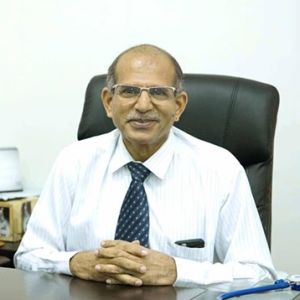Kawasaki Disease: A Quick brief by Dr Ranjit JagtapPosted by dr ranjit jagtap on April 10th, 2024 When it comes to the health of children, a disease called the Kawasaki Disease is on the rise. Most of the time it gets unnoticed, but knowing about this is significant for you because of its effects on the children. This condition is very rare, and it targets children under age 5 mainly resulting in the inflammation of medium-sized arteries which deliver blood to the heart. Read this piece of article from Dr Ranjit Jagtap news to learn everything about the Kawasaki disease. Being aware of its symptoms like fever, spot rash, and swollen lymph nodes is very important for parents. Although the disease is still rare, it is significant to understand Kawasaki disease, which is crucial for timely diagnosis and treatment that ultimately saves children from the danger. What is Kawasaki Disease?Children, who are usually young, are suffering from the strange Kawasaki disease. Mucocutaneous lymph node syndrome and Kawasaki syndrome are two other names used for the disease as well. Although Kawasaki disease is a shear disease, most of the children who get the medical treatment early recover perfectly. Most Kawasaki disease cases are in children below 5 years. But in rare cases, the adults and older children get it too. However, compared to females, males have the greatest number of cases of this disease. While children of any ethnicity can have this disease, Asian or Pacific Islanders have higher chances. Kawasaki Disease Symptoms:The disease known as Kawasaki is characterised by several symptoms, such that this disease can be diagnosed by parents and health providers. This condition is marked by high fever, swelling of lymph nodes, red eyes, and irritability. It is important to recognize these symptoms early in order to start early treatment and management. This may therefore reduce the development of life-threatening complications such as coronary artery abnormalities. In this regard, remaining alert and immediately seeking medical attention when these signs are noticed are two essential matters to do to prevent further loss of the child's health. Kawasaki Disease Causes:No one knows the exact origin of Kawasaki Disease. A lot of experts and researchers are looking after it, but unfortunately so far no one is closer to the answer. It is considered that there is a mixture of genetic predisposition with environmental determinants, which causes the disease. Certain research claims the possibility that a virus or any other infectious agent could cause an amplified immune response, which in turn would result in an inflammation of the arteries. Yet, very little obvious evidence has been found to be the direct cause of pathogens in Kawasaki Disease. Even though the research is ongoing, if they find out the causes of this disease, the treatment, and diagnosis of this disease will be much more guaranteed and easier. Kawasaki Disease Diagnosis:As of now, the diagnosis of Kawasaki is difficult, since there is no special test to pinpoint it. Healthcare providers greatly rely on a mix of clinical signs and symptoms, along with specific tests that are needed to rule out other conditions. Such tests may entail blood tests, echocardiography, or other imaging studies. Kawasaki Disease Treatment:It is imperative that the early diagnosis and the therapy are applied for preventing the complications of the disease. The therapy usually requires intravenous immunoglobulin (IVIG) which is used to reduce inflammation and aspirin to lower fever and clotting of blood. Sometimes additional medications are prescribed or treatments are indicated, based on how serious the sickness is. Kawasaki Disease Prognosis:Many children with KD can be successfully treated early and make full recoveries without long-term effects of the disease. While medications are quite useful in managing this condition, failure to treat it leads to an increased risk of developing coronary artery abnormalities and other life-threatening health issues. The patient should be followed by a specialised staff, and often monitored, to guarantee the child’s health is maintained. Conclusion:In conclusion, Kawasaki Disease, which is rare, can have a big impact on the child's health. Dr Ranjit Jagtap's clinic is already equipped to offer accurate advice and support to the families of patients suffering from the disease. Moreover, Dr Ranjit Jagtap daughter, Aditi & Poulami, are reputable directors, making a remarkable contribution to this cause of healthcare. To get more information or help in dealing with Kawasaki Disease one can visit Dr. Ranjit Jagtap's clinic, situated in Pune, or explore the Ram Mangal Heart Foundation directed by Aditi Jagtap Pune for invaluable support and resources. Let us unite and strive to raise awareness of this condition and those who are affected by it. Like it? Share it!More by this author |


